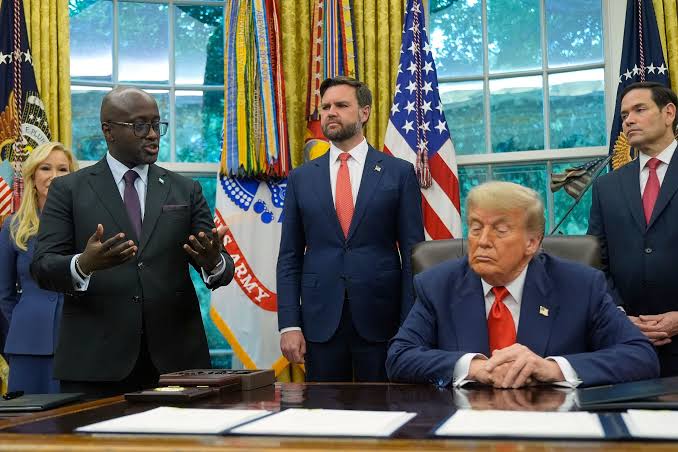
Rwanda has confirmed it will take in up to 250 migrants deported from the United States under a new agreement with the administration of President Donald Trump, marking the latest chapter in the East African nation’s growing role in international resettlement efforts.
Government spokesperson Yolande Makolo told the BBC that the deportees will receive workforce training, healthcare, and housing to help them start new lives in Rwanda. The arrangement also allows Kigali to vet and approve everyone proposed for relocation.
Though the White House has not publicly addressed the agreement, officials indicated they are in discussions with countries willing to help deport what they referred to as “illegal aliens” allowed in under the Biden administration.
The deal comes amid a renewed push by President Trump, who returned to office in January to implement a sweeping deportation plan, fulfilling one of his core campaign promises.
Humanitarian Values Amid Political Deals
Makolo justified Rwanda’s decision by citing the country’s own experience with displacement. “Nearly every Rwandan family has experienced the hardships of displacement,” she said, emphasizing that national values are rooted in reintegration and rehabilitation.
This sentiment echoes earlier remarks by Rwanda’s Foreign Affairs Minister, who noted in May that the country’s history, shaped by the 1994 genocide, guides its commitment to offering second chances to people in crisis around the world.
In fact, Rwanda previously hosted nearly 3,000 refugees and asylum seekers evacuated from Libya under a 2019 deal with the United Nations and the African Union. Many of them have since been resettled elsewhere.
From UK to US: Kigali’s Shifting Migration Partnerships
The US-Rwanda deal follows the collapse of a similar high-profile arrangement with the United Kingdom. The UK’s £240 million ($310 million) plan to send asylum seekers to Rwanda was scrapped last year after Sir Keir Starmer’s Labour government came into power, ending months of legal challenges that had dogged the initiative.
It remains unclear what will happen to the facilities constructed in Rwanda for the UK-bound migrants. Observers speculate that these could now be repurposed for US deportees, though officials have not confirmed this.
Makolo declined to reveal whether the US migrants would be housed in the same accommodation, or whether Rwanda would receive financial support as part of the deal. Reuters reported that Kigali may receive an unspecified grant, though this remains unconfirmed.
Rights Concerns and Regional Tensions
The deal has sparked criticism from human rights groups who argue that sending migrants to a third country, especially one with a contested human rights record, could breach international law. Concerns persist that deportees might face further transfers to countries where they are at risk.
Rwanda, however, insists it offers a safe environment for migrants. The government has also denied allegations of supporting the M23 rebel group, which is involved in conflict in neighbouring Democratic Republic of Congo.
Despite the controversy, Rwanda and DR Congo signed a ceasefire agreement in Washington in June as part of broader peace efforts aimed at ending long-standing instability in the region.
Looking Ahead
While key aspects of the Rwanda-US deportation arrangement remain undisclosed, including any financial components and accommodation plans, Kigali says more details will be shared in due course.
For now, the agreement underscores Rwanda’s strategic positioning as a partner in global migration policies and revives debate about the ethics, legality, and sustainability of third-country resettlement deals.